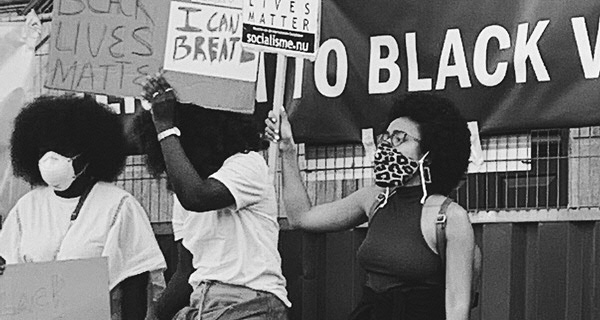About the Decolonize Hub
The Decolonize Hub is an initiative founded by staff and students from the History department specifically and other programs in the Faculty of Arts. The main goal of the workgroup is to address racialized prejudice in education and the university. This hub can be seen as a gathering of information related to decolonization and anti-racism. It will serve as an online nexus that connects UG Faculty of Arts teaching, research, initiatives around this topic in Groningen, and gives access to a network of other initiatives related to anti-racism and decolonization.
What is decolonization? A short introduction
Decolonization as a theory and practice can have different meanings for different people. During the 1950s and 1960s the term became primarily associated with the end of colonial rule and was linked to challenging imperialism . In this sense, the decolonization processes of the mid-to late twentieth century achieved political independence from their former colonial powers. However, the achievement of political decolonization did not go hand-in-hand with the decolonization of other spheres of life such as the production of knowledge. Within this context, especially scholars from the Global South embraced “decolonial thought” which is still related to anti-colonial resistance but goes beyond the issue of political decolonization by challenging the economic, political and ideological power of Europe and North America. 1
Decolonial and decolonizing approaches offer key challenges to Eurocentric forms of knowledge production, meaning that they seek to embrace a plurality of perspectives, worldviews, ontologies, epistemologies and methodologies in which scholarly enquiry may take place. Hereby, the epistemological authority exclusively assigned to the Western University as a privileged site of knowledge production is questioned and challenged. 2 Decolonial Movements of the 21st century generally advocate for more diverse contents of teaching as well as for different ways of teaching. In this context, decolonizing the university refers to transforming knowledge practices to move beyond Eurocentric, heteronormative and anthropocentric epistemologies as well as frameworks of understandings and pedagogical practices. 3 In short, decolonizing the university aims to move beyond singular approaches to knowledge, research, teaching and learning to acknowledge and embrace the multitude of existing knowledges in our world.
References
1. Silverman, Maxim, ed. Frantz Fanon's Black Skin, White Masks: New Interdisciplinary Essays. Texts in Culture. Manchester: Manchester University Press, 2012. 2.
2. Bhambra, Gurminder K., Dalia Gebrial, and Nişancıoğlu Kerem. “Introduction: Decolonising the University.” In Decolonising the University, 1–18. London: Pluto Press, 2018. 3.
3. Icaza, Rosalba and Vázquez, Rolando. “Diversity or Decolonisation? Researching Diversity at the University of Amsterdam”. In Decolonising the University, 108-128. London: Pluto Press, 2018. 112.
| Last modified: | 11 November 2021 10.02 a.m. |



